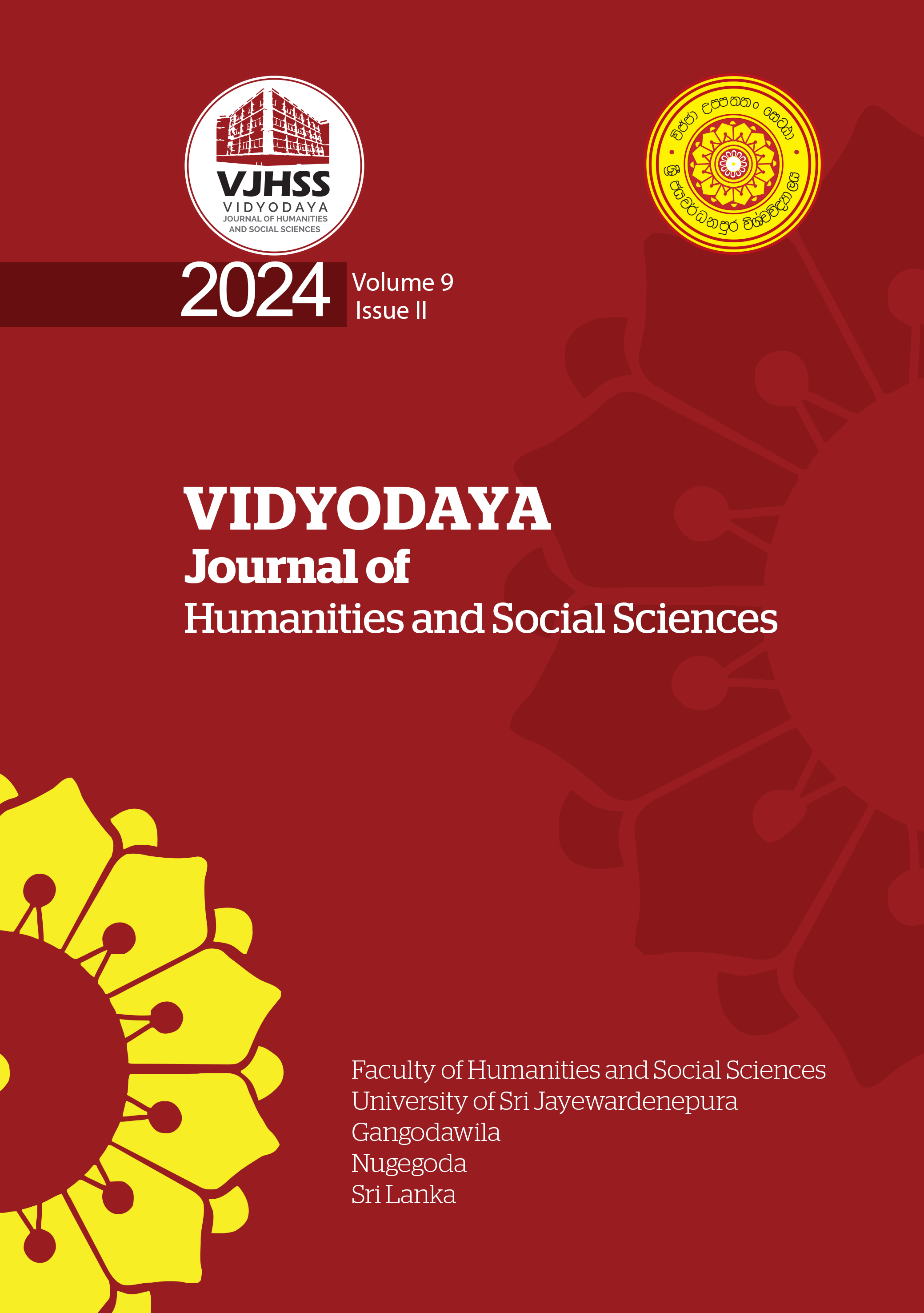The Public Trust in Representative Democracy: A Study Based in Batticaloa District, Sri Lanka
Abstract
Most countries in the world have a democratic system of government. Debates on representative democracy and public trust have continued for decades. Today, people's faith in representative democracy is waning. Thus, the main objective of this study is to examine people's trust in representative democracy in Batticaloa district. It also aims to explore the reasons for the decline in trust in representative democracy. This study is based on primary and secondary data. A questionnaire method consisting of interviews and structured questions was also used to collect the first-level responses. According to the analysis carried out, the study revealed that the people's confidence in representative democracy is low in Batticaloa district. The economy and the failure of representative democracy have been found to be the main factors behind low public confidence in representative democracy. Increased corruption, non-conduct of elections, non-election of the president through new elections, family rule, abuse of power, majoritarianism, flawed government policies, weakness of the government structure have been found to be the reasons for the decrease in people's confidence. This study highlights the many challenges that representative democracy has faced, and their causes, and solutions. As such, this study emphasizes that people's trust in representative democracy can be established when mechanisms such as government transparency, establishing political trust, holding elections in a timely manner, promoting direct democratic strategies, establishing government accountability, and providing opportunities for people and civil society to participate in political activities are implemented.



